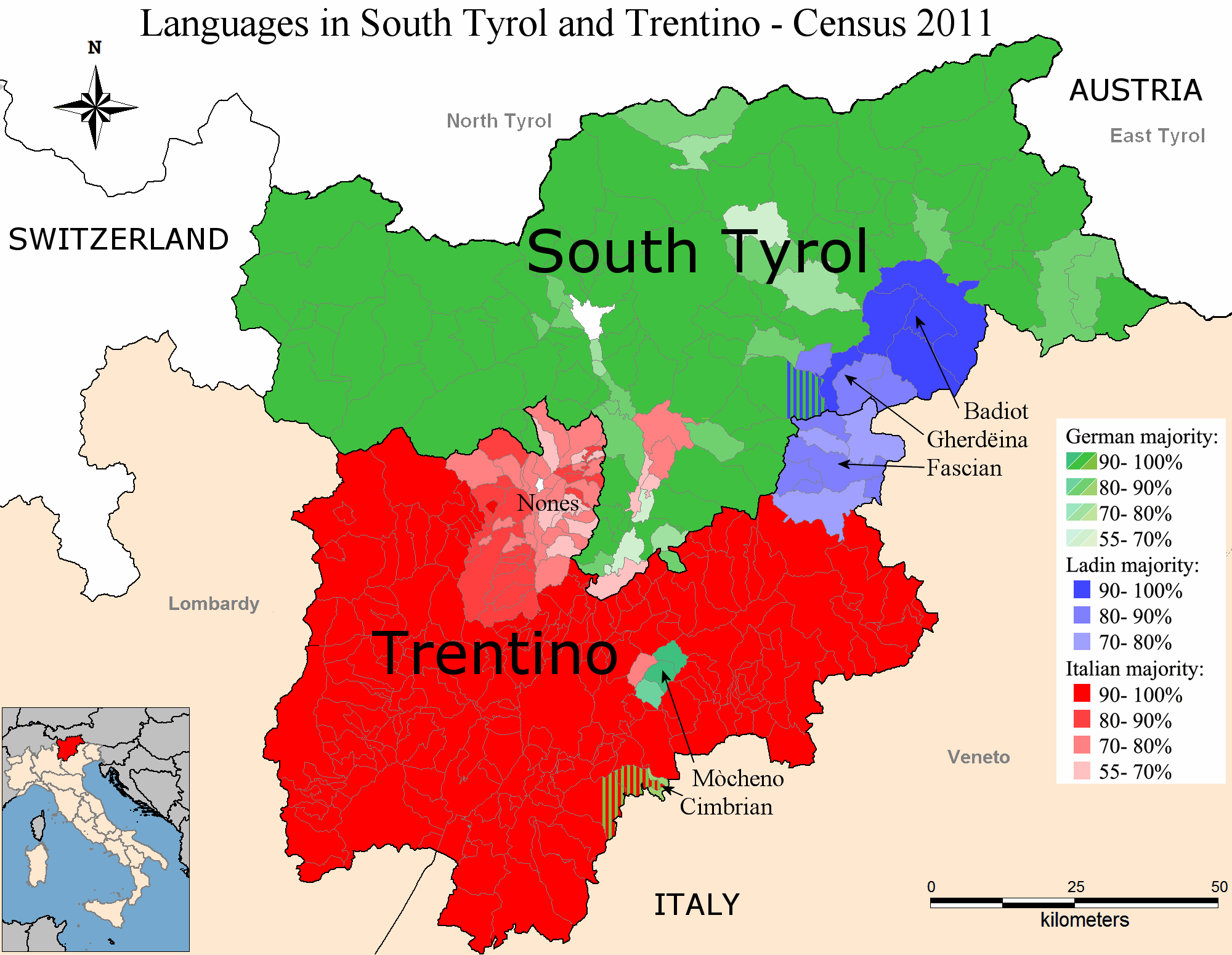Languages of Italy
German–Ladin Group
Regions: Trentino-Alto Adige/Südtirol, Veneto, Friuli-Venezia Giulia
This group includes two linguistic minorities: German-speaking communities in South Tyrol and Ladin-speaking communities in the Dolomites. Ladin is a Rhaeto-Romance language related to Romansh and Friulian, while German belongs to the West Germanic branch. Both have official recognition in various municipalities.
History and Classification
Ladin evolved from Vulgar Latin in isolated Alpine valleys. It preserves many archaic features and shows influence from surrounding languages. German in South Tyrol stems from Bavarian settlers and has been reinforced through education and policy. Today, German is co-official in South Tyrol, and Ladin is protected in certain Dolomite valleys.
Examples
German (South Tyrol):
Es ist nicht nur eine Sprache, es ist unsere Identität.
Standard Italian: Non è solo una lingua, è la nostra identità.
English: It’s not just a language, it’s our identity.
Ladin (Val Gardena / Gherdëina):
Noscia lenga l'é na part de nosta vita.
Standard Italian: La nostra lingua è una parte della nostra vita.
English: Our language is a part of our life.
Ladin (Val Badia):
La nostra lenga é viva, ma l’é de mantëgnì.
Standard Italian: La nostra lingua è viva, ma deve essere mantenuta.
English: Our language is alive, but it must be preserved.
Ladin (Comelico):
La lenga de n paiés l’é l’anima de la gent.
Standard Italian: La lingua di un paese è l'anima della sua gente.
English: A country’s language is the soul of its people.
Ladin (Fascian):
La nostra lenga l'é bela e rica de storia.
Standard Italian: La nostra lingua è bella e ricca di storia.
English: Our language is beautiful and rich in history.

Dialects and Variants
- South Tyrolean German – A southern Bavarian dialect used in schools and administration.
- Ladin Dolomitan – A standardized form used in education and publishing.
- Val Badia, Val Gardena, Ampezzo Ladin – Key valley dialects with strong cultural presence.
Audio Samples
- German (South Tyrol): South Tyrolean Dialect vs. Standard German
- Ladin (Gardena): The Sound of the Gardena Ladin Language
- Ladin (Val Badia): The Sound of the Val Badia Ladin Language
- Ladin (Comelico): The Sound of the Comelico Ladin Language
- Ladin (Fascian): The Sound of the Fascian Ladin Language
Current Status
German is widely spoken and fully supported in South Tyrol through schooling, media, and government. Ladin enjoys official protection in a few mountain valleys, but remains endangered overall. Intergenerational transmission has declined, though schools and cultural organizations work actively to preserve it.